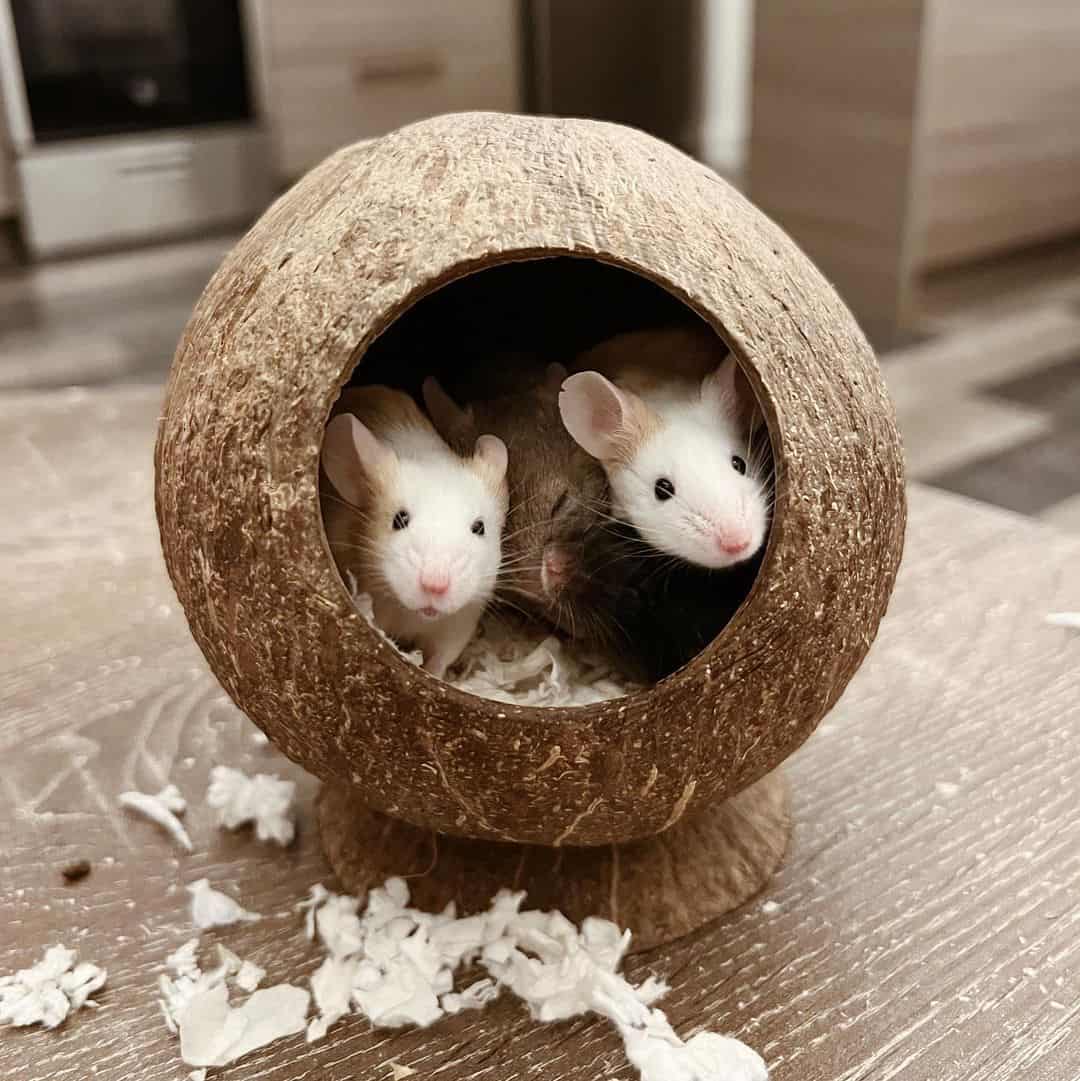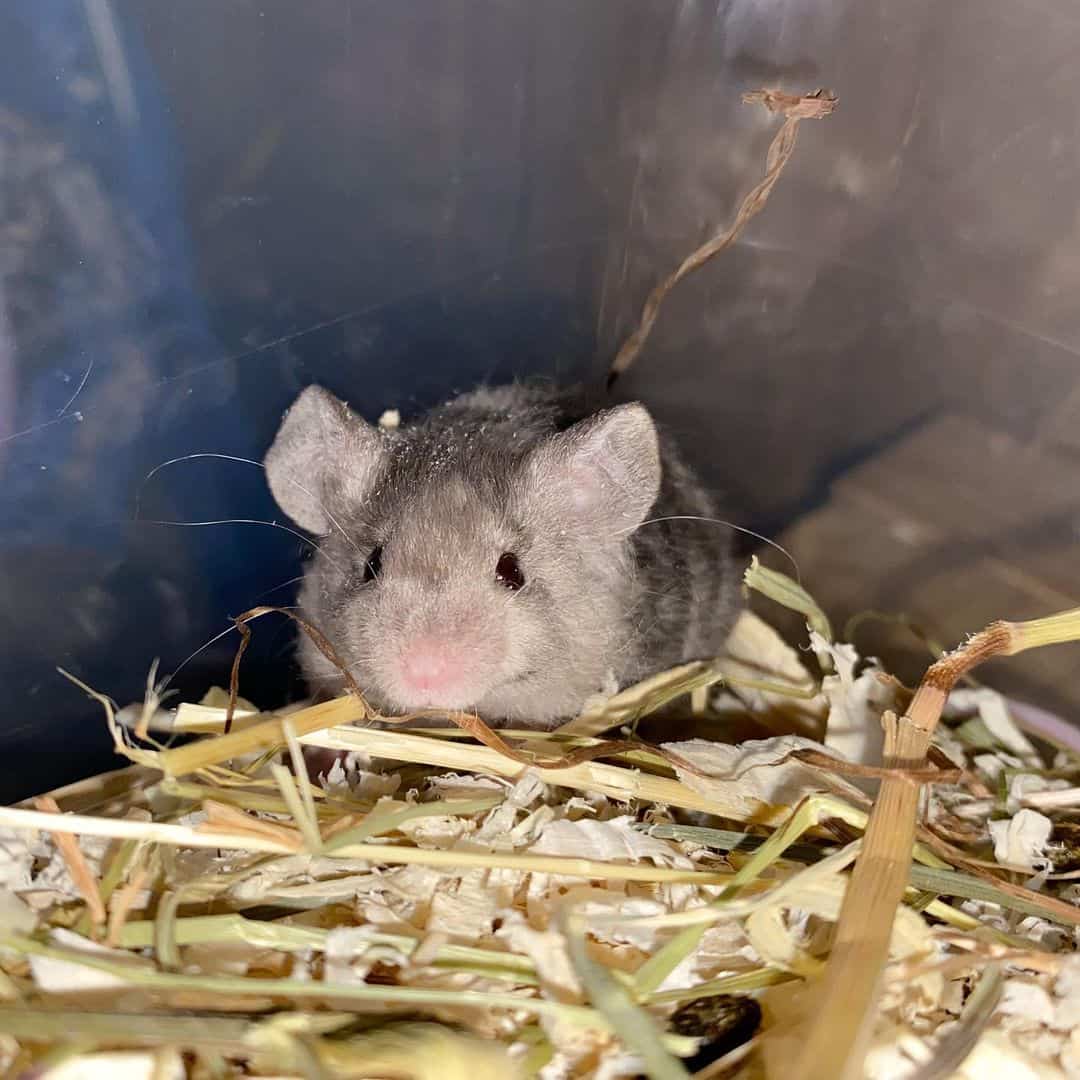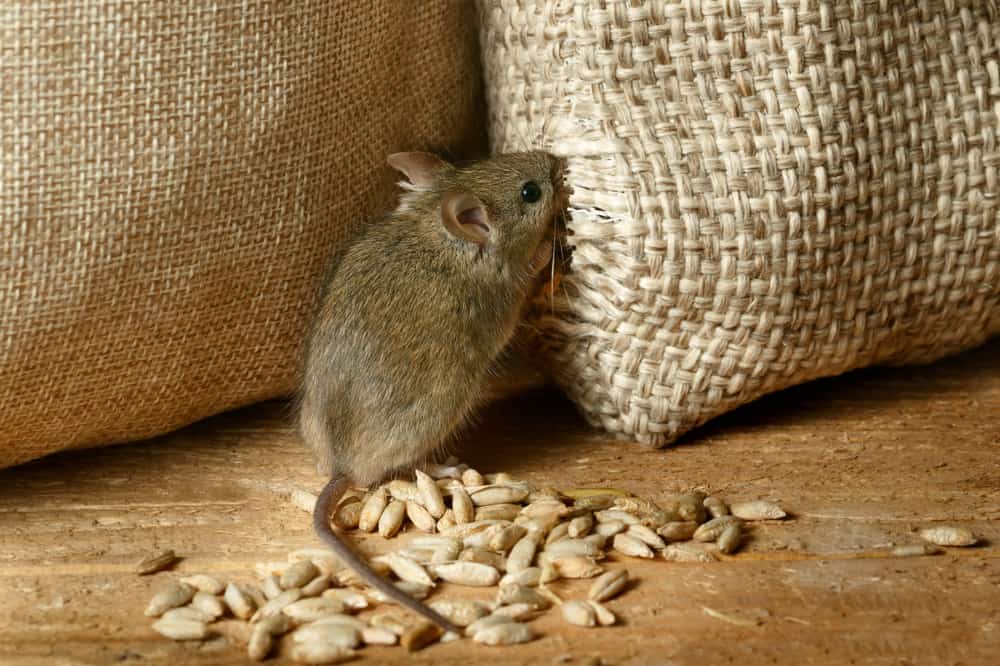Most people have encountered at some point in their life a couple of unwanted guests squatting in their basements, attics, or barns, known as mice.
Although they have a likable and seemingly innocent appearance, they can wreak havoc in your home, destroying furniture, food, or installations. If you ever housed these squatters, you have probably heard a specific high-pitched sound that they use to communicate.
Generally, we can hear them or detect their presence due to their squeaking or scratching, but these do not constitute the full extent of their sound vocalizations.
As mentioned, mice communicate and warn against predators using these various sounds. However, these squeaks and chirps are mainly inaudible to humans.
On the other hand, they rarely go unnoticed wherever they go- they tend to scratch cabinets, destroy wiring, or drag various materials to their nest.
Mice Sounds
The most prevalent types of mice in the US are deer mice and house mice, although some other species, such as cotton mice or western harvest mice, are also very common. Regardless of the species, these little rodents can be challenging and problematic.
Besides the destruction, they also pose a hygienic threat to you and your family. Therefore, if you read this article to learn about their sounds and eliminate the mouse problem, you are in the right spot.
1. Squeaking and Chirping
One of the most commonly heard sounds made by mice is squeaking and chirping. So, what does it mean, and why do they use it? Mice are nocturnal animals, meaning they are active at night, which is when you can usually hear these sounds.
Furthermore, most mice tend to avoid humans, and coupled with their ‘nightlife,’ it is unlikely that you will see them. However, you will hear them squeaking, scratching, and chirping.
Interestingly, mice use these high-pitched squeaks or ultrasonic vocalizations to communicate and express emotions. The frequency of squeaks and their pitch depends on the type of information that they are trying to communicate.
For example, if a mouse finds found, he will squeak and communicate this to other mice. On the other hand, they also use it during mating.
The difference is in the pace and pitch- it is usually very loud when they find food, and when they are mating, they produce these multiple squeaks in short intervals.
- Why Do Mice Squeak and Chirp?
There are several reasons why mice use these sounds, and they mostly try to communicate a piece of particular information. For example, mice tend to squeak very loudly when they find food. On the other hand, you can hear them squeak during mating or even fighting.
If a mouse tries to ‘contact’ another mouse, they usually produce a combination of these sounds. Interestingly, when females are trying to communicate with each other, they chirp.
- How to Use These Sounds To My Advantage?
As mentioned, if you are trying to get rid of mice, you can use these sounds to locate them and then plan a solution or a method of elimination. Your first step is to try the exact location where the sounds originate.
Mice often make themselves home in your attics, cracks, or drawers. However, mice have a minimal sound range, meaning that if you have heard a mouse chirping in your wiring, it is most likely that his friends are very near.
2. Scratching

Probably the most identifiable mouse sound is scratching. As stated, they are known to cause various damage and include scratching multiple surfaces in your home.
Although you initially might think a demon has possessed your house, it is most likely a mouse searching for food and scraping whatever surface he lands on.
Mice are very active and agile, they climb wherever they can and do not shy away from inaccessible places. As they perform their ‘parkour’ and ‘gymnastics,’ they cause damage by digging their nails into surfaces to get a better grip or gain traction.
- Where Do Mice Hide in the House?
Their favorite locations are usually those areas that have food, such as the kitchen or a storage room. If you hear scratching noises in the kitchen, that is probably a mouse trying to get a hold of your cereals or bread, depending on what you have.
Leftover food and crumbs are also something that attracts not only mice but also other animals, such as opossums or squirrels. Furthermore, mice often make these sounds as they are ‘building’ runaways from food sources to their nest.
Mice also like to inhabit ceilings and walls, mainly because these locations shelter them and protect them from our view. You often hear a mouse trying to ‘drill’ through drywall to make a path and get to the other side.
3. Pitter-pattering
Since they are very active and light, this tiny destroyer often pitter-patter when they run. If you are unfamiliar with the term pitter-patter, it refers to the succession of soft beats and taps.
So, why do they pitter-patter? You will hear them pitter-patter in your ceiling, walls, or even under the bed when they try to find a nest, store stolen food, or gather insulation. Usually, when they see the right location, the sounds come to an abrupt end as they assess it.
When hearing this, people often shout or make a loud noise, hoping to scare the mouse away. However, it rarely works; they pause and then continue their ‘chores.’ It would not be surprising to hear them pitter-patter in pipes; they often use them to access your house and traverse it.
4. Gnawing

Mice are animals that are always hungry and continually search for food. In the process, they often nibble or gnaw food and various other materials such as wood, plywood, cloth, and even cardboard.
Their gnawing sounds like a handsaw being rubbed against a piece of wood. The sound is intolerable and often keeps people awake at night due to its loudness and consistency.
Mice tend to gnaw in areas where you can find wood or wire insulation everywhere in your house.
The good thing (if we can call it that) is that mice generally do not go very further from their nest and usually concentrate on that area until they find a better one. Why is this a good thing?
Because it will make it easier for you to locate them- if you hear it gnawing in your kitchen, you know that its nest is pretty close to it.
5. Dragging Materials
Like many other animals and humans, mice are susceptible to coldness, which explains why they tend to inhabit houses during winter. So, this sensitivity to low temperatures means they are cautious and picky when building their nest.
When making their nest, mice will use and collect various materials they come across in your house, such as paper, rags, or cardboard. Upon finishing, they will add some shredded material to add warmth.
When they enter your house, they start constructing their nests, which is why you often hear materials dragged across various surfaces. This sound is usually accompanied by pitter-pattering.
6. Plopping

As noted earlier, mice are acrobats and can climb and even jump from various surfaces, including cables and beams. While doing so, they often make a soft plopping sound. This sound is usually followed by scratching or scampering.
However, you must be very near to hearing this soft plop. It is usually easier to locate it by the scratching sounds. If you listen to it, that is an excellent chance to chase the culprit with a box or a Tupperware if you are not afraid of it.
Why Do I Need to Get Rid of Mice?
Even though you might think that mice are cute, they pose a severe health hazard. Besides chirping and squeaking, they also have other communication methods, including dropping feces and urine.
Their droppings and urine contain bacteria and viruses harmful to humans, causing severe health issues, including Salmonella and Hantavirus. If you notice piles of mice feces, that is a certain clue that you have unwillingly welcomed some squatters into your home.
However, you can use this to your advantage. If you notice large quantities of mice feces in certain areas, that indicates that they are most active in those spaces, so you can plan to put mice traps or poison, depending on your choice.
Conclusion
Mice make a number of different sounds, which either have the purpose of sharing information, informing about food, or mating, among others. We can often hear them chirp or squeak, but we often listen to them scratching and pitter-pattering.
If you notice any of these noises, that is most likely a clue that you have a mice infestation in your home. We suggest you immediately deal with the issue before they multiply, and you will have a serious problem.
Which mice sound is the most common? Please, share your experience with us. If you have any questions, do not hesitate to ask.
